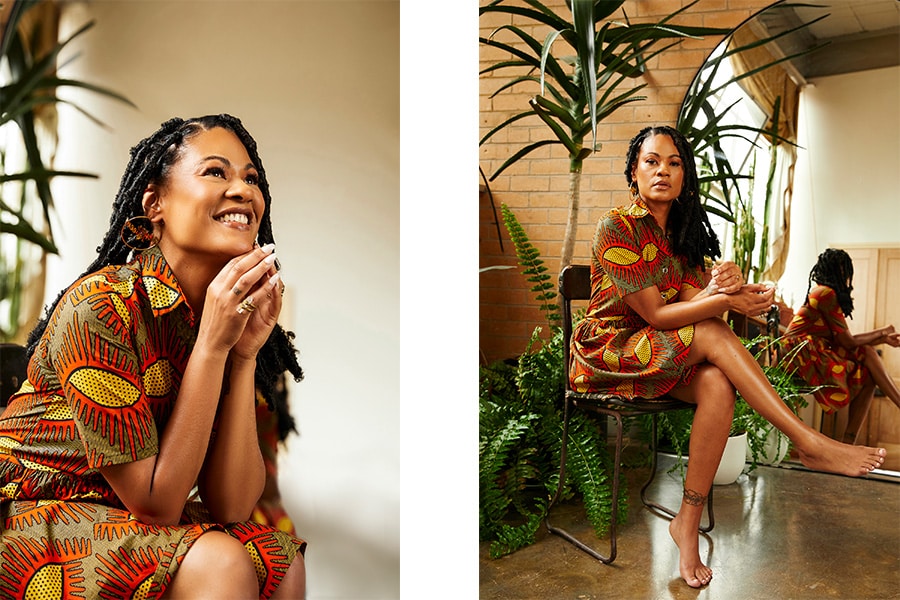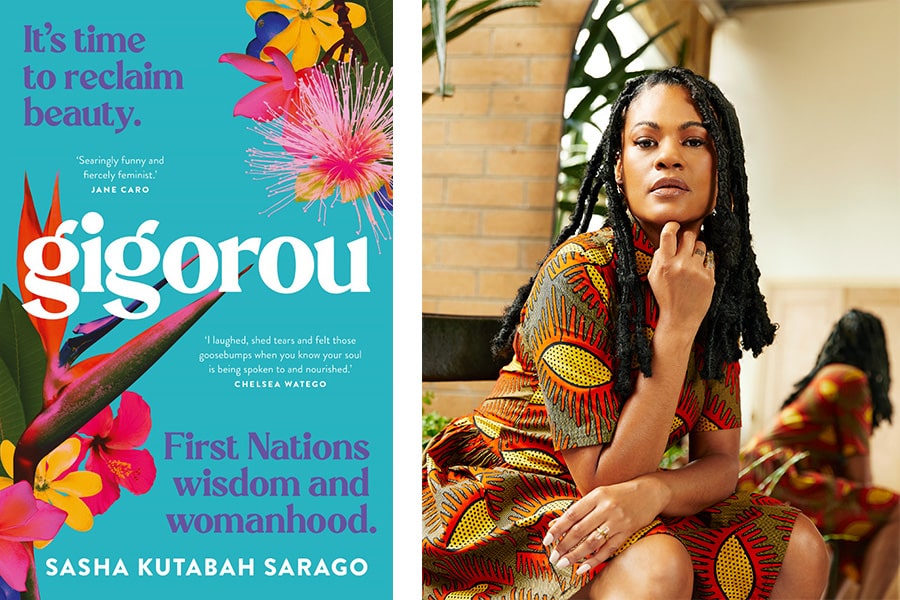
Sasha Kutabah Sarago is a Wadjanbarra Yidinji, Jirrbal and African-American woman who has worn many hats, be it beauty assistant, model, magazine editor and now, author. Despite this proximity to the commercial world of beauty, it was the process of connecting to gigorou – the Jirrbal word for beautiful – through the lens of her First Nations culture, ancestors and matriarchal wisdom that was the most formative. As Sarago explores in her forthcoming book Gigorou, the notion of beauty as it was sold to her throughout various moments in her life, is inextricably tied up with colonialism, patriarchy, and Eurocentric standards.
In Gigorou, Sarago rallies against these ideas and takes readers through her own journey of decolonising the beauty standards thrust upon her from childhood. Ahead of the launch of her memoir, RUSSH spoke with Sasha Kutabah Sarago to discuss her relationship with self-care, what people get wrong about beauty and why Kelis is her ultimate muse.
What does beauty mean to you? Has your definition evolved over time?
Yes, it's evolved. My beauty is centred around the health of my mind, body and spirit – how I feel about myself. Your aura shines far beyond aesthetic beauty when you're confident in who you are.
What role does self-care play in your life?
Self-care helps me regain my authenticity – remembering how amazing I am. When I am stressed, I tend to forget to protect my magic and give my power away.
What is a supermarket/drug store/chemist beauty product that you use and love?
Skin Republic Collagen Under Eye Patches.
Throughout your time as a beauty assistant, model and magazine editor, what are some of the things you've noticed people get wrong about beauty?
They let others define beauty for them. Beauty is heavily sold to us as trends via influencers, brands and celebrities; here today, gone tomorrow. The relationship with ourselves is constant. I'd rather wake up with sovereignty over how I feel about myself over strangers who don't have my best interest at heart. I want a gigorou (beauty) that gives me vitality in life, not insecurities.
In your book Gigorou, you discuss redefining beauty outside dominant eurocentric, patriarchal and colonial understandings. Can you tell me how this book came about?
I had finally made peace with most of my traumas concerning beauty and my femininity, which I briefly shared in my TEDx talk: The (de)colonising of beauty. I had always envisioned expanding this conversation in long form to pay homage to my First Nations culture and the matriarchal wisdom that helped me throughout my healing journey.
What are some actionable ways you’ve learned to decolonise your understanding of beauty?
I start by re-imagining beauty through the lens of my culture and Ancestors. I carve out time to connect to Country to listen to my spirit. That’s where I feel most gigorou. The more time I spend away from the mirror and on the scales, the more wisdom I gain about myself and the world around me.

What do you do when your body needs to recover?
I rest, get a facial, massage, hit the steam room, go to the beach, or do whatever my body craves. Recovery also includes binging on dark chocolate and mindless reality TV.
What is the one non-negotiable in your beauty routine?
Moisturising.
Do you have a beauty icon? Who are they and why?
Kelis. I love her holistic approach to beauty. She grows and gathers foods from her farm and uses natural ingredients for her skin and hair care line Bounty & Full. I want a beauty regime that is raw and natural. Kelis is a trendsetter – her hair and fashion game is always on point – eclectic and unapologetic. That's the type of beauty I'm striving for.
What is the one product you can't live without?
Palmer's Cocoa Butter Body Lotion.
What is the best advice on beauty you've received?
Drink at least 1-1.5 litres of water every day.
Gigorou by Sasha Kutabah Sarago hits bookshelves on February 28.



